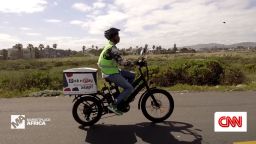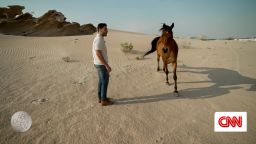Story highlights
Venezuela and ExxonMobil are feuding over the 2007 nationalization of a project
A case is pending before a World Bank dispute arbitration body
President Hugo Chavez Venezuela "will not recognize any decisions" of the panel
This month a Paris-based body said Venezuela owes Exxon $907 million
When the World Bank’s arbitration body weighs in on a dispute between Venezuela and ExxonMobil, President Hugo Chavez says he won’t respect the decision.
The oil giant and officials from the South American nation have been feuding since 2007, when Chavez’s government nationalized a joint project in the country’s crude-rich Orinoco belt.
A case before the World Bank’s International Centre for Settlement of Investment Disputes (ICSID) is pending.
“I will say it once. We will not recognize any decisions of the ICSID. We will not recognize them,” Chavez said on state television Sunday.
A hearing in the ICSID case is scheduled for the first quarter of 2012, according to a summary of the dispute published in an Exxon financial report.
Last week Venezuela’s state oil company PdVSA said it would pay ExxonMobil $255 million after the Paris-based International Chamber of Commerce ruled that Venezuela owes ExxonMobil $907 million. Past debts and asset seizures make up the difference, officials from PdVSA said in a statement.
Chavez criticized ExxonMobil, which has asked for billions of dollars in compensation, for continuing with the case.
“Since they couldn’t do it in Paris, now they are going to the ICSID in the United States,” he said.
ExxonMobil affiliates filed the ICSID arbitration case against Venezuela in September 2007 over the Cerro Negro Project, which was a joint venture until the Venezuelan government took over ExxonMobil’s 42% interest in June of that year.
ExxonMobil has argued that PdVSA breached obligations under an investment treaty. Venezuela argued that taking over the project and others in Orinoco belt was its sovereign right.
Chavez, who has nationalized numerous industries and land holdings during his 13-year tenure, said Sunday that he supported Ecuadorian President Rafael Correa’s proposal to create a new arbitration body “where we can settle whatever differences there are between governments and companies in Latin America.”
Venezuela – along with allies Bolivia and Nicaragua – has said in the past that it would withdraw from the convention that created the ICSID, arguing that the international body gives transnational companies a gateway to violate national sovereignty.
Chavez repeated those concerns Sunday, saying the arbitration panel was being used to threaten his country.
“They are trying to achieve the impossible, that we pay them what we are never going to pay,” he said.
World Bank directors devised the international arbitration panel in 1965. More than 140 countries are members, according to a statement on the ICSID website, which describes the body as an “autonomous international institution.”
CNN”s Catherine E. Shoichet and journalist Osmary Hernandez contributed to this report.





